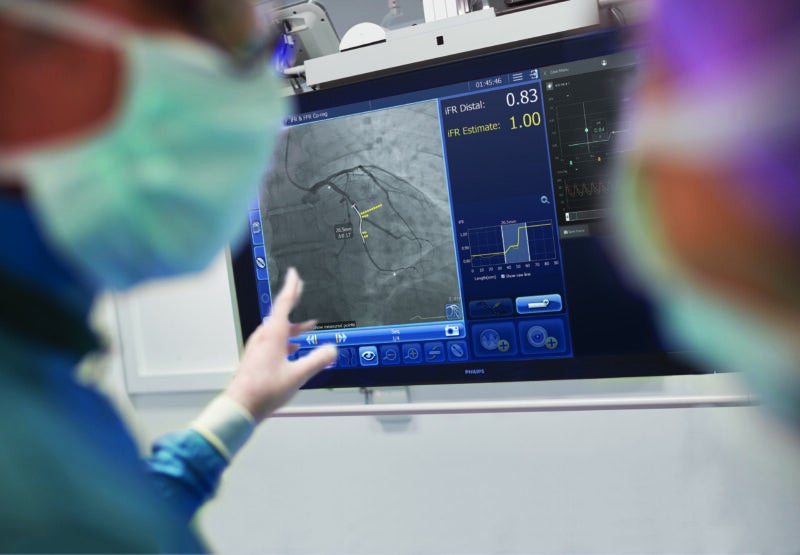
Royal Philips said that Philips instant wave-free ratio (iFR) in the guidance of percutaneous coronary intervention (PCI) showed similarity in terms of safety of fractional flow reserve (FFR) in a longitudinal analysis.
Philips iFR is a pressure-derived index used to evaluate coronary blockages during interventional procedures without utilising hyperemic agents.
The analysis from the National Swedeheart Quality Registry of over 42,000 patients undergoing coronary procedures compared patient outcomes using iFR and FFR in the treatment and diagnosis of heart disease.
The real-world, long-term data demonstrated no difference between iFR and FFR in major adverse cardiac events (MACE).
Philips image guided therapy devices general manager Chris Landon said: “We are confident in our pursuit of innovation to improve outcomes and ensure patient safety. The data continues to demonstrate the benefits of iFR-guided treatment to reduce costs and improve outcomes.
“iFR technology is unique to Philips, and we are proud to offer the global gold standard treatment for patients with ischemic heart disease.”
According to the previously released analysis, iFR and FFR were determined to be equally safe and efficacious in terms of MACE risks throughout the five-year follow-up of the randomised iFR-SWEDEHEART trial.
At five years, there was a 1.6% difference in the cumulative MACE risks for each group. The risk of death, having a heart attack, or needing additional revascularisation was not changed.
In a separate development, the Dutch health technology company partnered with imaging biomarker firm Quibim on artificial intelligence (AI)-based imaging and reporting solutions for MR prostate exams.
The partnership will combine Quibim’s AI-powered image analysis software, QP-Prostate software, with Philips’ AI-enabled MR imaging. This will offer fast, easy prostate cancer care in order to mitigate staff shortages and reduce the cost of care, the health technology firm said.
Both entities will also aim to automate real-time prostate gland segmentation in MR images, generate key quantitative insights, and standardise MR prostate exam reporting.




